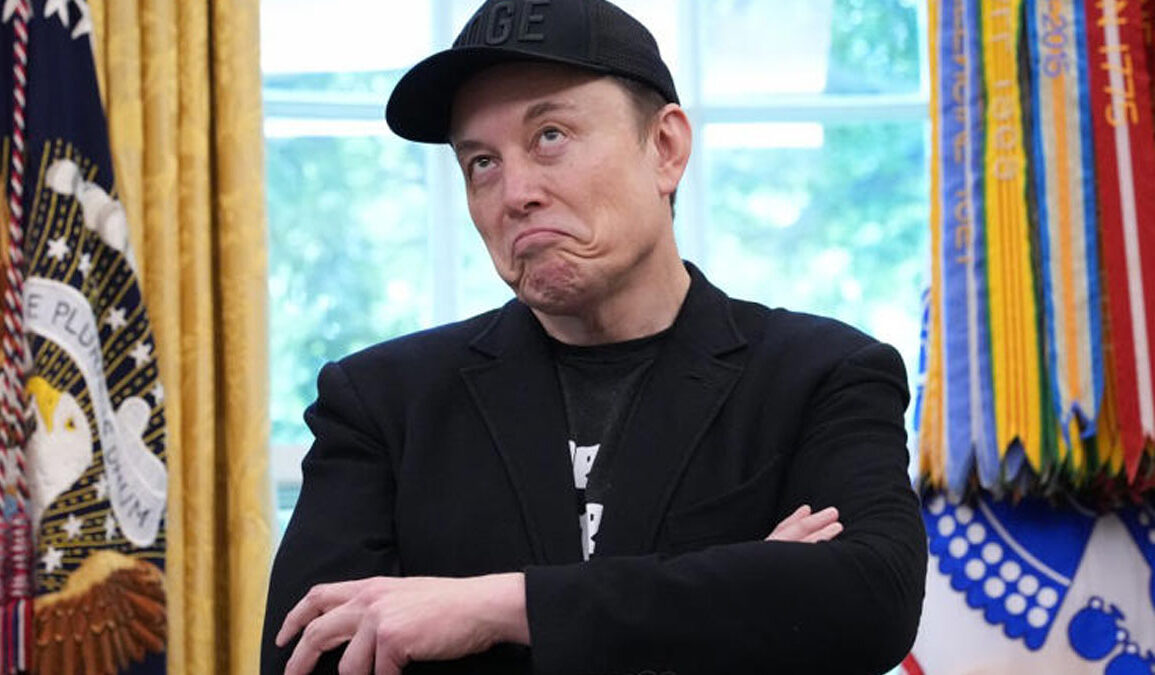For years, Wikipedia has claimed to be the world’s great encyclopedia. But critics say that promise has collapsed under the weight of systemic bias against conservatives. What once aimed to be “the sum of all human knowledge” is increasingly described as “Wokepedia,” a platform where liberal narratives dominate and dissenting voices are silenced.
Tucker Carlson put the stakes plainly: “Wikipedia shapes America,” he said, calling it “an emergency” that the site is “completely dishonest and completely controlled on questions that matter.”
How the System Tilts Left
Wikipedia’s sourcing rules sound harmless, but they determine everything. If the gatekeepers declare conservative outlets “deprecated” while elevating CNN, the New York Times, or Mother Jones, then only one side’s framing gets embedded. Larry Sanger, who co-founded Wikipedia before leaving the project, describes what happens next: “Over the years, conservatives, libertarians, were just pushed out. There is a whole… army of administrators, hundreds of them, who are constantly blocking people… that they have ideological disagreements with.”
Jimmy Wales rejects that criticism, portraying the volunteers as nonpartisan. “I know so many Wikipedians, and they’re just a bunch of really nice nerds and they’re not political activists,” he said. Wales insists neutrality is “nonnegotiable” and says a “special working committee” is reviewing practices. Yet that reassurance rings hollow to those who see selective enforcement and structural bias built into the rules that decide which sources count and which do not.
NP Editor: This is because Jimmy Wales is one of those liberala hiring and approving editors who are biased, i.e. this goes all the way to the top.
The Research: What Studies and Investigations Are Finding
Several efforts now document bias and organized manipulation on Wikipedia, especially on politically sensitive topics. Together they show scope, methods, and impacts that reach far beyond a single website.
David Rozado and the Manhattan Institute. In a computational analysis summarized by the Manhattan Institute, data scientist David Rozado examined the sentiment and emotional tone attached to politically charged terms across Wikipedia entries. His findings are stark: Wikipedia “entries are more likely to attach negative sentiment to terms representative of right-leaning political orientation than to their left-leaning counterparts.” Right-of-center terms are “more frequently connected with emotions of anger and disgust,” while left-leaning terms are “more frequently linked with the emotion of joy.” Rozado also observed that these biased associations “pop up in OpenAI’s language models,” suggesting that bias on Wikipedia can “percolate” into AI systems trained on its text. The warning is clear. If Wikipedia leans left, that lean gets baked into the machine learning models that now answer questions for hundreds of millions of people.
Anti-Defamation League case study. The ADL identified “a coordinated campaign to manipulate Wikipedia content related to Israel, the Israeli-Palestinian conflict, and similar issues,” with “a group of at least 30 editors” who “circumvent Wikipedia’s policies in concert to introduce antisemitic narratives, anti-Israel bias, and misleading information.” The ADL details off-platform coordination, tandem editing, and intimidation tactics that “make it impossible for good-faith editors to participate.” Its analysis shows how biased changes can be smuggled into articles, from moving or deleting terrorism designations to removing references that document atrocities. In Arabic-language pages on Hamas, the ADL found entries that glorify the terror group and flout neutrality, including sections that praise “martyrs,” celebrate tunnel building, and use propaganda-like language that would never pass muster for balanced coverage. The ADL’s bottom line is blunt: “Wikipedia needs to do far more to address anti-Jewish and anti-Israel bias and coordination.”
Congressional oversight. House Oversight Chair James Comer and Rep. Nancy Mace opened a probe into “organized efforts” to manipulate Wikipedia and asked the Wikimedia Foundation for documents on its safeguards. They cited studies that “highlighted efforts to manipulate information on the Wikipedia platform for propaganda.” The committee’s letter specifically requests details about “the tools and methods Wikipedia utilizes to identify and stop malicious conduct online that injects bias and undermines neutral points of view.” The Wikimedia Foundation replied that it “welcome[s] the opportunity to respond to the Committee’s questions,” but critics note that welcoming a discussion is not the same as fixing the problem.
Taken together, these efforts show bias is not isolated, accidental, or rare. It is observable at scale, coordinated in some topic areas, and powerful enough to shape what search engines surface and what AI models learn.
Musk’s Verdict: Wikipedia Is an Extension of Legacy Media
Elon Musk has moved from mockery to mobilization. He once needled the platform by saying he would donate a billion dollars if it changed its name to “Dickipedia.” His view has hardened. “Since legacy media propaganda is considered a ‘valid’ source by Wikipedia, it naturally simply becomes an extension of legacy media propaganda,” he wrote. When Wikipedia published framing that he and others saw as hostile to conservatives, Musk concluded the site is “broken.” He amplified Judicial Watch’s Tom Fitton calling Wikipedia “a smear machine for the Left,” to which Musk responded with an emphatic “💯.”
The Plan: Build Grokipedia
Musk is not stopping at criticism. He announced that xAI is building Grokipedia, calling it “a massive improvement over Wikipedia.” “Join @xAI and help build Grokipedia, an open source knowledge repository that is vastly better than Wikipedia! This will be available to the public with no limits on use,” he posted. He endorsed Larry Sanger’s reform agenda as “good suggestions” and said Grok will be “independent of Wikipedia by the end of the year.” At the All-In Podcast event, David Sacks pressed him to “publish” a cleaned and corrected knowledge base because, as Sacks put it, “Wikipedia is so biased, it’s a constant war.” Musk agreed, and the “Grokipedia” concept went from a suggestion to a declared project.
What Critics and Defenders Are Saying
On the right, the reaction ranges from alarm to action. Tucker Carlson called Wikipedia’s bias “an emergency.” Larry Sanger says conservatives and libertarians have been “pushed out” and that administrators are “constantly blocking people… that they have ideological disagreements with.” The ADL warns of “bad-faith editors” who coordinate to launder propaganda and intimidate dissenters, while also demonstrating how Arabic-language pages can become echo chambers for Hamas narratives.
Wikipedia’s defenders insist the system works. Jimmy Wales emphasizes “a really strong degree of intellectual independence” and says “the neutral point of view is nonnegotiable.” The Wikimedia Foundation says it is reviewing the congressional request and welcomes the conversation. Critics answer that welcoming questions and forming committees is not enough when biased sourcing rules, blacklist practices, and off-wiki coordination keep pulling content in one direction.
Why This Matters for AI, Search, and Public Debate
Wikipedia sits at the base of the modern information stack. It feeds Google knowledge panels, dominates top search results, and supplies training text for AI models. The Manhattan Institute warns that any bias on Wikipedia risks being “absorbed into the foundational parameters” of systems like ChatGPT, “perpetuating, and amplifying these biases further.” The ADL says bluntly that search engines and LLMs should downrank or exclude contested Wikipedia topics until they can be verified. If nothing changes, the leftward tilt that critics see on Wikipedia will continue to cascade into search answers, classroom assignments, and the automated tools that now mediate public debate.
The evidence is piling up. Data analyses show a sentiment skew against the right. Watchdogs have documented coordinated campaigns to reshape narratives. Congress has opened an investigation. Elon Musk is building a rival so that the public has a knowledge base that does not treat legacy media as infallible. Wikipedia’s leadership says neutrality is sacred. But neutrality is not a slogan. It is a standard you must enforce. Until the rules change and the enforcement matches the promise, Wikipedia will keep looking like what its critics call it: a powerful engine of liberal propaganda dressed up as an encyclopedia.
NP Editor: This is one of the vestiges of woke-ism that we have suffered through over the last decade. needs to be fixed or replaced.








